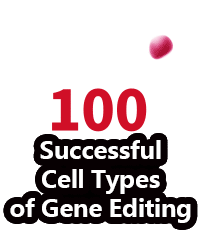No Side Effects in Small Trial
Advanced cancer patients treated with immune cells that underwent CRISPR-mediated gene editing exhibited no serious side effects, New Scientist reports.
It notes that concerns about the treatment particularly revolved around whether unintended CRISPR cuts occur and turn those cells cancerous as well.
The University of Pennsylvania's Carl June and his colleagues conducted a first-in-human phase I clinical trial examining the safety and feasibility of using CRISPR-Cas9 to engineer T cells from three advanced cancer patients. As they report this week in Science, the researchers found that the modified T cells — they deleted three genes and added one — persisted in the patients for at least nine months and that the treatment appeared safe.
"Before we did this, no one had ever infused CRISPR-edited cells into patients, and we're encouraged by the fact that we could do it safely," first author Edward Stadtmauer, an oncologist at UPenn, tells Wired. "Now we can move on to a whole new frontier of further engineering these cells and expanding the number of patients treated."
New Scientist notes, though, that the researchers are eyeing a new CRISPR technology for their follow-up studies. June tells it that they are exploring CRISPR base editing as it can inactivate genes without cutting, which lessens the chance of the treatment leading to cancer.
Ubigene Biosciences is co-founded by biological academics and elites from China, the United States, and France. We are located in Guangzhou Science City, which serves as a global center for high technology and innovation. Ubigene Biosciences has 1000㎡ office areas and laboratories, involving genome editing, cell biology technology, and zebrafish research. We provide products and services for plasmids, viruses, cells, and zebrafish. We aim to provide customers with better gene-editing tools for cell or animal research.
We developed CRISPR-U™ and CRISPR-B™ (based on CRISPR/Cas9 technology) which is more efficient than general CRISPR/Cas9 in double-strand breaking, CRISPR-U™ and CRISPR-B™ can greatly improve the efficiency of homologous recombination, easily achieve knockout (KO), point mutation (PM) and knockin (KI) in vitro and in vivo.
Genome Editing Platform
——Focusing on the Application of CRISPR-U™ and CRISPR-B™ Gene Editing Technology
1. Provides various types of gene-editing vectors for different species.2. Provides different virus packaging services, including lentiviruses, adenoviruses and adeno-associated viruses.3. Provides high-quality services for gene knockout, point mutation and knockin cell lines.
Cell Biology Platform
——Focusing on primary cell
1. Provides over 400 types of primary cells.2. Provides culture strategies and related products for different cell types.3. Provides cell biology-related services such as cell isolation, extraction and validation.
